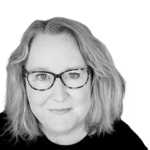
How an Association Rebounded, Turning Challenges Into Progress
A new CEO saw opportunity in multiple challenges and brought about real change—including a significant boost in membership and initiatives to dismantle systemic racism in higher education. Here are insights into how he achieved an ambitious agenda.
The National Association for College Admission Counseling (NACAC) recently achieved a 65 percent increase in membership—during a pandemic—and now encompasses more than 23,000 admissions and counseling professionals representing more than 3,600 postsecondary institutions, high schools, and related nonprofits across the globe.
How did they do it? It did not happen overnight, or easily.
Full-Court Press
In July of last year, with membership numbers falling, NACAC’s new CEO, Angel Pérez, launched a “membership action squad” that met every day to figure out ways to retain and recruit members. The taskforce reached out to everyone in the office—from the front desk to Pérez—and asked each of them to pick up the phone and call 50 members to remind them to renew and to say: “We know you’re going through one of the most difficult periods in your career, how can we help?”
“It was a full-court press and nonstop—day, night, weekends on the phone with members trying to make sure they renewed,” he said. The effort helped NACAC retain the members it was losing. The association also offered members a 10 percent COVID-19 discount because they were struggling due to diminished tuition dollars and other factors.
A More Inclusive Membership Model
But the biggest reason for the membership surge was a change to NACAC’s membership model, which allowed member institutions to extend the benefits of NACAC membership to their entire counseling and admission teams. Previously, institutions tended not to include their younger counselors in their membership because it was expensive, which meant these young professionals did not have access to NACAC’s professional development resources, networking, and other benefits, Pérez said.
The importance of professional development cannot be overestimated as a factor in membership value. According to Marketing General Incorporated’s 2020 Association Economic Outlook Report, 84 percent of association executives surveyed last year indicated they planned to increase virtual professional development opportunities for members during the pandemic.
Pérez is particularly excited that adding younger members to the roster is helping the profession. When he began his tenure at NACAC in July, he said, a lot of people in the profession were wavering about whether to stay because the environment had become so challenging, especially in higher education. By adding younger and newer professionals to the membership, NACAC hopes to capitalize on their energy. Pérez also plans to create new certification training programs for new admissions officers and secondary school counselors.
“A big part of the goal was to become more inclusive, but also to capture the next generation of members, which we weren’t capturing because our membership was too expensive,” he said.
Aiming for Racial Equity
Pérez did not shy away from the challenges of the pandemic—or from the racial reckoning in the country. Right out of the gate, in his first message to members, Pérez wrote, “I must use my voice, privilege, and platform to help dismantle systemic racism, starting in the places where I have direct influence.”
Many members of the profession were saying access to higher education needed to become more equitable, he said, but no one was leading the national conversation. Pérez saw an opportunity for NACAC to take the lead and, with a grant from the Lumina Foundation, it established a national commission to reimagine financial aid and college admission systems with the goal of eliminating racial inequity in accessing higher education, among an array of other diversity initiatives.
In the midst of crises, Pérez saw a lot of potential. “Our members have so much need,” he said. “If we can figure out how to solve their problems, make their lives easier, and be their go-to resource in their careers, then we have an extraordinary opportunity.”
(Nuthawut/iStock/Getty Images Plus)






Comments